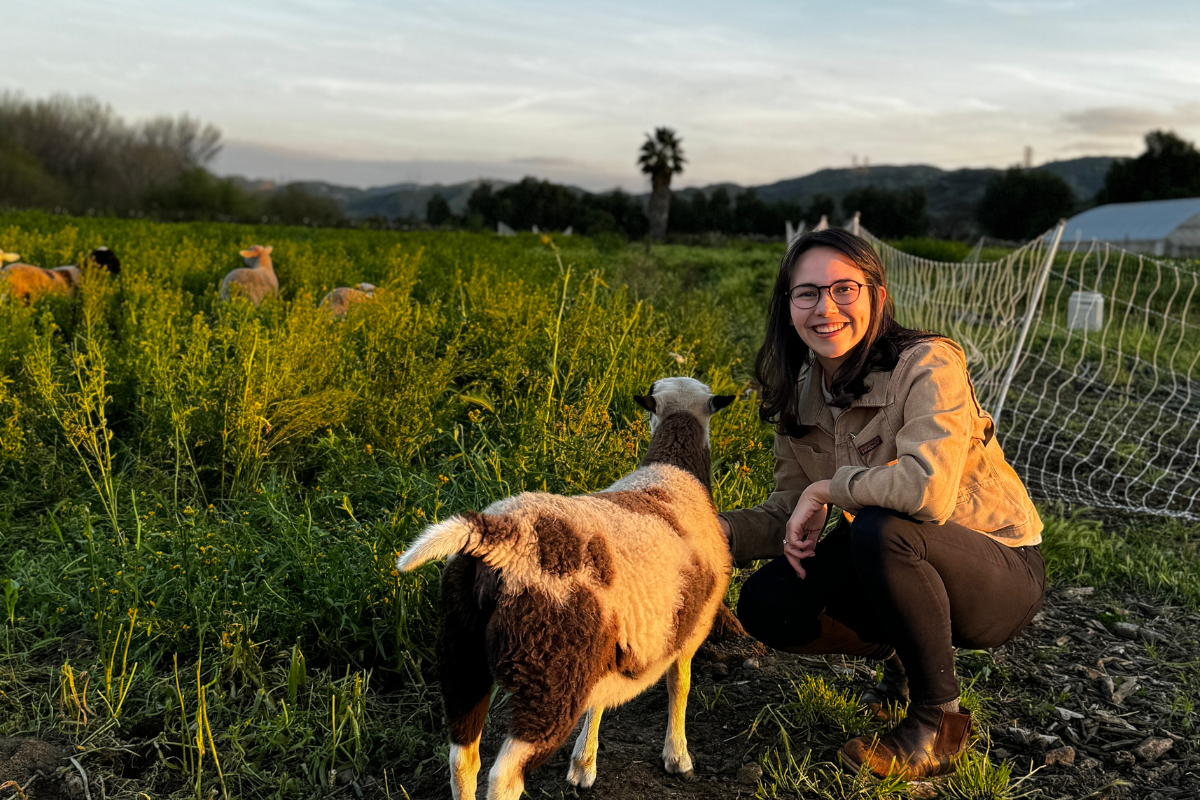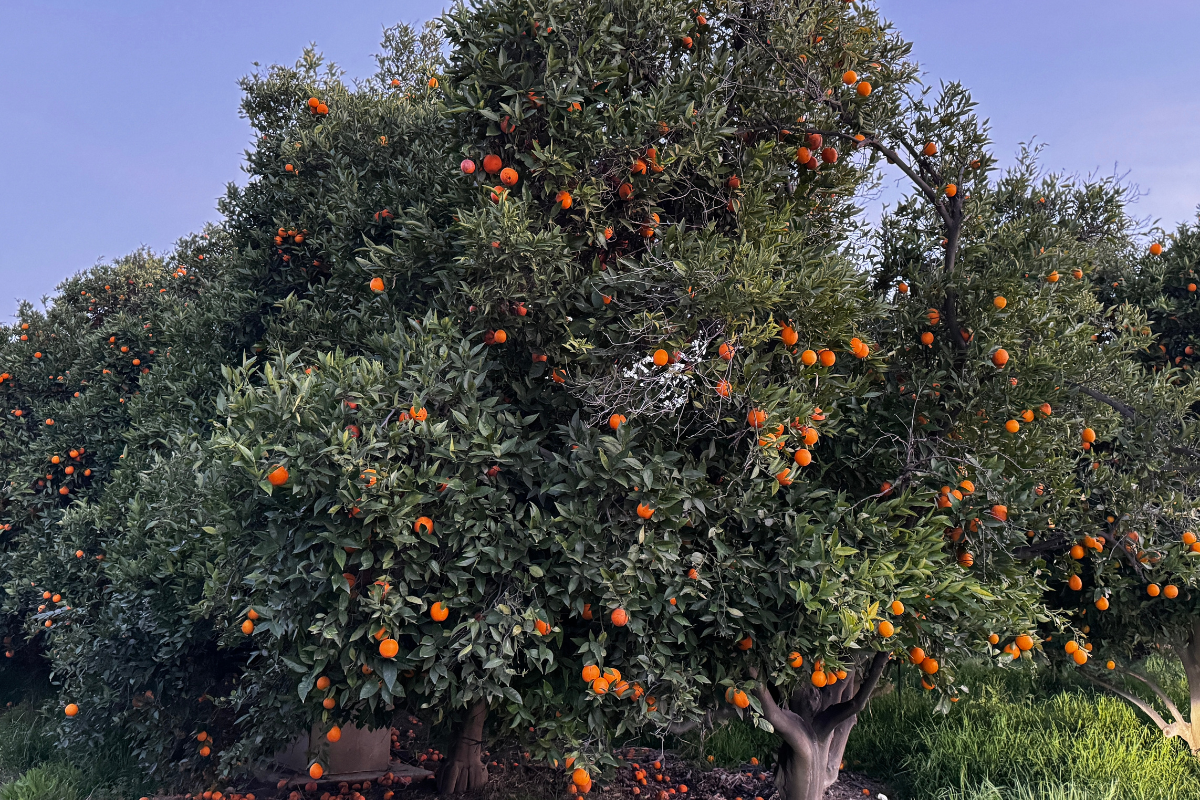Pedestrian killed in early morning crash
Woman struck from behind in dark stretch of Alabama Street; fourth pedestrian death in city in six months.
Fifth-generation Redlands farmer warns of impacts of cuts to USDA funding on small producers and student nutrition as federal government pulls back support for farm-to-school initiatives.
REDLANDS, Calif. — Recent cuts to United States Department of Agriculture (USDA) funding raises concerns about the future of farm-to-school programs and food bank partnerships across the country, including here in Redlands.
Why it matters: The success of these programs partially rely on federal support to provide fresh, local produce to schools and families in need. The reductions could significantly impact both local farmers and the communities they serve, limiting access to nutritious food for students and those experiencing food insecurity.
The impact on local farms: For decades, local farms have benefitted from USDA funding that facilitated contracts with schools and food banks. These partnerships not only supported small-scale agriculture, but also ensured that students received fresh, locally grown food as part of their meals. With the latest round of federal budget cuts, however, many farmers now face uncertainty about their ability to continue these partnerships.
The USDA initially planned to completely halt the "Food Box" program, which Old Grove Orange and other farms in the Redlands area were under contract for until 2026. Anna Knight, a fifth-generation farmer and operator of Old Grove Orange, explained that contracts cannot simply be stopped once food is already planted.
After two weeks, federal funding was temporarily unfrozen, but shortly after, the USDA announced a $1 billion cut to farm-to-food bank and farm-to-school programs.
The funding cut affects two key USDA programs: the Local Food Purchase Assistance (LFPA) program and Local Food for Schools (LFS). While LFPA funding was temporarily frozen in March before being reinstated through 2026, a previously approved extension worth approximately $330 million has been canceled.
The USDA has halted $500 million in food deliveries to food banks nationwide, funding that was originally announced by the Biden administration last year. This funding came from the USDA’s Commodity Credit Corporation, which provides additional resources to purchase food from American farmers and distribute it to emergency food providers.
California Governor Gavin Newsom sent an appeal on April 5 to the USDA appealing the termination of the LFPA program.
“California’s agriculture sector – which produces nearly half the country’s fruits and vegetables – relies on the support of the Department of Agriculture to ensure that they can get fresh, healthy foods onto families’ tables,” Newsom said in a statement. “The irrational and malicious slashing of funds will not only hurt our farmers, but also the families who need food banks and school meals to stay healthy and thrive. I implore the USDA to immediately reverse this decision.”
California is the nation’s largest agricultural leader, producing nearly half of the nation's fruits and vegetables. In 2024, the state’s LFPA allocated the California Association of Food Banks over $22.3 million to provide local healthy food and 18,647,546 meals to food-insecure Californians.
The Local Food for Schools and Child Care Centers program, valued at $660 million between the two initiatives, has been pulled entirely.
“The Local Food for Schools program has enabled chronically underfunded school meal programs to purchase fresh, local options for student meals — everything from locally grown produce, fresh fish, or meat from nearby ranches, to cheese, yogurt and milk from local dairies,” Shannon Gleave, the School Nutrition Association’s president, said in a statement. “In addition to losing the benefits for our kids, this loss of funds is a huge blow to community farmers and ranchers and is detrimental to school meal programs struggling to manage rising food and labor costs.”
These programs have been vital lifelines connecting small farms with institutional buyers like school districts and food banks.
"Every director who has taken part in LFS has had a good experience and has loved it. But are they going to be able to continue if this funding doesn't exist?" Knight asks. "I would say half of these newer practitioners, even though they've had an amazing experience… they’re not going to be able to continue."
Old Grove Orange operates as both a family farm and a food hub that coordinates with 28 farming families across San Bernardino and Riverside counties. Together, they supply produce to more than 45 school districts in the Greater Los Angeles Basin. Since 2005, 100% of their produce has been sold directly to K-12 school districts.

Knight explained that this collaborative approach helps overcome barriers that would otherwise prevent small farms from accessing institutional markets.
"The average farm in San Bernardino county makes less than $50,000. So 80% of farms in San Bernardino county make less than $50,000 a year in sales," she said. "And acreage wise, the vast majority are less than five acres."
For these small producers, the federal programs provided crucial financial stability and market access. The cuts are especially devastating because farming requires long-term planning.
"A farmer is seeding their vegetables months in advance," Knight explained. "These crops go into the ground weeks, weeks, weeks, months, months, months in advance."
The impact extends beyond farmers to the students who benefit from fresh, local produce in their school meals. Knight says the funding allowed schools to introduce students to a wider variety of fruits and vegetables than they would normally experience.
"Kids in our area tried organic dragon fruit that was sourced 40 miles from Redlands," she said. "Kids have tried Australian finger limes... It's familiarizing kids with a whole new genre of fruits and vegetables that exist."
The Redlands Unified School District (RUSD) has been partnering with Old Grove Orange for 17 years, making it one of the pioneers in farm-to-school procurement. Knight believes RUSD will continue to prioritize local sourcing despite the funding cuts, but she worries about newer programs in other districts.
"We are so happy and proud to be Redlands farmers because RUSD is going to stand with us," Knight said. "But even if every RUSD student ate a local orange, it still wouldn't save all the groves in our region."

To adapt to the changing funding landscape, Old Grove Orange is diversifying its operations. The farm is expanding into agritourism, hosting field trips for approximately 7,000 students annually and opening to the general public for events like their upcoming Orange Blossom Festival on April 12.
They're also exploring partnerships with university systems and participating in post-fire recovery projects, including work with World Central Kitchen to provide fresh produce to families affected by January fires in the Altadena community.
Knight emphasizes that farm-to-school programs serve two essential constituencies: students and farmers.
"When we prioritize shortening the supply chain and shortening that moment of pick to moment on the lunch line, that is when we can get our kids the most nutritious produce possible," she said.
The loss of farmland in Southern California makes these programs even more critical. Knight notes that every five years, the region loses 15 to 20% of its farming operations.
"Ultimately, our farmland is worth so much more as developed real estate than we will ever make farming it," she said. "And so if we decide that these small farm gems are important to us, the onus is really on our community to make sure that those small farms can continue forever."
Knight remains hopeful that policymakers will recognize the value of these programs, which she describes as supporting "the most vulnerable in our community, which is food insecure families and kids, while at the same time really uplifting some of the last farms in Southern California."
Sign up for our weekly newsletter